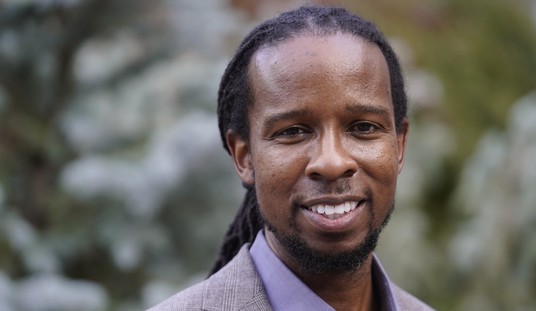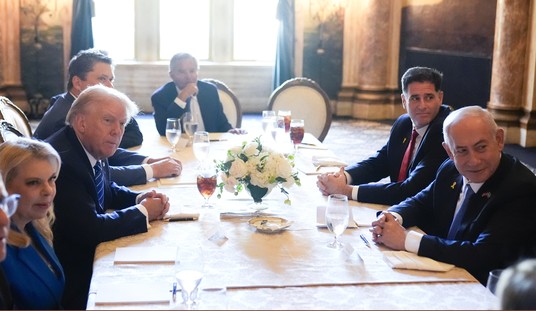Call this the basic formation in the executive-privilege playbook — when subpoenaed, refuse. CNN reports that administration attorneys have instructed former White House comms director Hope Hicks and deputy White House counsel Annie Donaldson to defy subpoenas from the House Judiciary Committee about their work at the White House. Hicks might have to cooperate on other matters, though:
Nadler told me this morning that these two also would likely be held in contempt if their subpoenas are not complied with
— Manu Raju (@mkraju) June 4, 2019
We’ll get back to the contempt process in a moment. House Judiciary chair Jerrold Nadler issued the subpoenas a couple of weeks ago, part of their effort to drill into White House operations and alleged obstruction episodes in Robert Mueller’s report. Today was the deadline for compliance on documentation for both:
The committee issued the subpoenas to Hicks and Donaldson as part of their sweeping investigation into possible obstruction of justice, corruption and abuse of power. The subpoena to Hicks, the former White House communications director, includes a request for documents and her appearance at a public hearing next month. The subpoena for Donaldson, who was deputy White House counsel, seeks documents and her appearance at a deposition in June.
The committee asks for both to provide documents by June 4, for Hicks to appear on June 19 and Donaldson on June 24. …
The committee wants to interview both Hicks and Donaldson about the obstruction episodes documented in special counsel Robert Mueller’s report.
The interest in Hicks is obvious. She took part in the discussions around the press strategy dealing with the infamously stupid Trump Tower meeting with Natalia Veselnitskaya in June 2016. Trump directed Donald Trump Jr and Jared Kushner not to release the e-mails relating to the meeting to reporters, over Hicks’ tactical objections, betting that they would never leak. Once they did, Trump then directed a PR strategy to cast the meeting as dealing strictly with Russian adoption and not an effort to collect oppo research on Hillary Clinton.
However, Hicks only played a minor role in all of this, and Mueller concluded that it wasn’t obstructive anyway. In fact, when it came to the legal issues, Trump had allowed everyone to comply fully, Mueller found:
Each of these efforts by the President involved his communications team and was directed at the press. They would amount to obstructive acts only if the President, by taking these actions, sought to withhold information from or mislead congressional investigators or the Special Counsel. On May 17, 2017, the President’s campaign received a document request from SSCI that clearly covered the June 9 meeting and underlying emails, and those documents also plainly would have been relevant to the Special Counsel’s investigation.
But the evidence does not establish that the President took steps to prevent the emails or other information about the June 9 meeting from being provided to Congress or the Special Counsel. The series of discussions in which the President sought to limit access to the emails and prevent their public release occurred in the context of developing a press strategy. The only evidence ,we have of the President discussing the production of documents to Congress or the Special Counsel is the conversation on June 29, 2017, when Hicks recalled the President acknowledging that Kushner’s attorney should provide emails related to the June 9 meeting to whomever he needed to give them to. We do not have evidence of what the President discussed with his own lawyers at that time.
Hicks’ role as a strategist within the White House puts her firmly in executive-privilege territory. Her role on the campaign, however, does not, since Trump was not an Article II officer at the time. Congress has a legitimate legislative interest in elections and their legitimacy, which is why Hicks is likely going to find ways to cooperate on that part of Nadler’s investigation.
The privilege claim arguably applies to Annie Donaldson too, who served as Don McGahn’s chief of staff and is pretty clearly Nadler’s target for a backdoor to McGahn’s testimony. Donaldson was around for McGahn’s near resignation over Trump’s demand to fire Mueller over Trump’s claims of conflict of interest. Donaldson told Mueller’s investigators that she was prepared to resign as well, although she had not been briefed on the specifics of Trump’s demand.
Mueller took this episode a lot more seriously than the Trump Tower spin session:
By mid-June, the Department of Justice had already cleared the Special Counsel’s service and the President’s advisors had told him that the claimed conflicts of interest were “silly” and did not provide a basis to remove the Special Counsel. On June 13, 2017, the Acting Attorney General testified before Congress that no good cause for removing the Special Counsel existed, and the President dictated a press statement to Sanders saying he had no intention of firing the Special Counsel. But the next day, the media reported that the President was under investigation for obstruction of justice and the Special Counsel was interviewing witnesses about events related to possible obstruction- spurring the President to write critical tweets about the Special Counsel’s investigation. The President called McGahn at home that night and then called him on Saturday from Camp David. The evidence accordingly indicates that news that an obstruction investigation had been opened is what led the President to call McGahn to have the Special Counsel terminated.
There also is evidence that the President knew that he should not have made those calls to McGahn. The President made the calls to McGahn after McGahn had specifically told the President that the White House Counsel’s Office-and McGahn himself-could not be involved in pressing conflicts claims and that the President should consult with his personal counsel if he wished to raise conflicts. Instead of relying on his personal counsel to submit the conflicts claims, the President sought to use his official powers to remove the Special Counsel. And after the media reported on the President’s actions, he denied that he ever ordered McGahn to have the Special Counsel terminated and made repeated efforts to have McGahn deny the story, as discussed in Volume II, Section II .I, infra. Those denials are contrary to the evidence and suggest the President’s awareness that the direction to McGahn could be seen as improper.
Still, neither McGahn nor Donaldson resigned at this time, and Trump backed away from removing Mueller as a result. This would also tend to fall within an executive-privilege claim as a frank discussion of potential complications from the use of legitimate Article II authority, if only to point out the arguably illegitimate purposes for its particular use.
Even without an overt act that actually impeded Mueller’s work, it’s a closer call, and it’s tough to see where a judge might draw the line here. The interest from Congress in this episode, based on the Mueller report’s details, is more clear than in how the White House deals with its own PR. The Department of Justice is an Article II agency but it operates with considerable authority and oversight of Congress, unlike the comms group in the White House. That might be enough to get a judge to override a privilege claim on Donaldson’s testimony.
Some lucky district court may get that opportunity soon with McGahn and William Barr. Steny Hoyer announced that the full House will vote soon on contempt citations for both:
Democrats plan to hold a full House vote next week to hold Attorney General William Barr in contempt over his refusal to provide lawmakers with Robert Mueller’s full, unredacted report and the underlying materials.
House Majority Leader Steny Hoyer said he is scheduling a vote for June 11 to hold Barr and former White House Counsel Don McGahn in contempt. House Democrats have subpoenaed McGahn for documents and testimony related to several incidents that Mueller probed for possible obstruction of justice by President Donald Trump.
“This administration’s systematic refusal to provide Congress with answers and cooperate with congressional subpoenas is the biggest cover-up in American history, and Congress has a responsibility to provide oversight on behalf of the American people,” Hoyer said in a statement.
That’s part of the congressional playbook, too. It’s all prelude until this gets into court, one way or another. The White House will lock down as much as they can through executive privilege, and Congress will have to wait a very long time to see if the judiciary really wants to get in between the two.








Join the conversation as a VIP Member